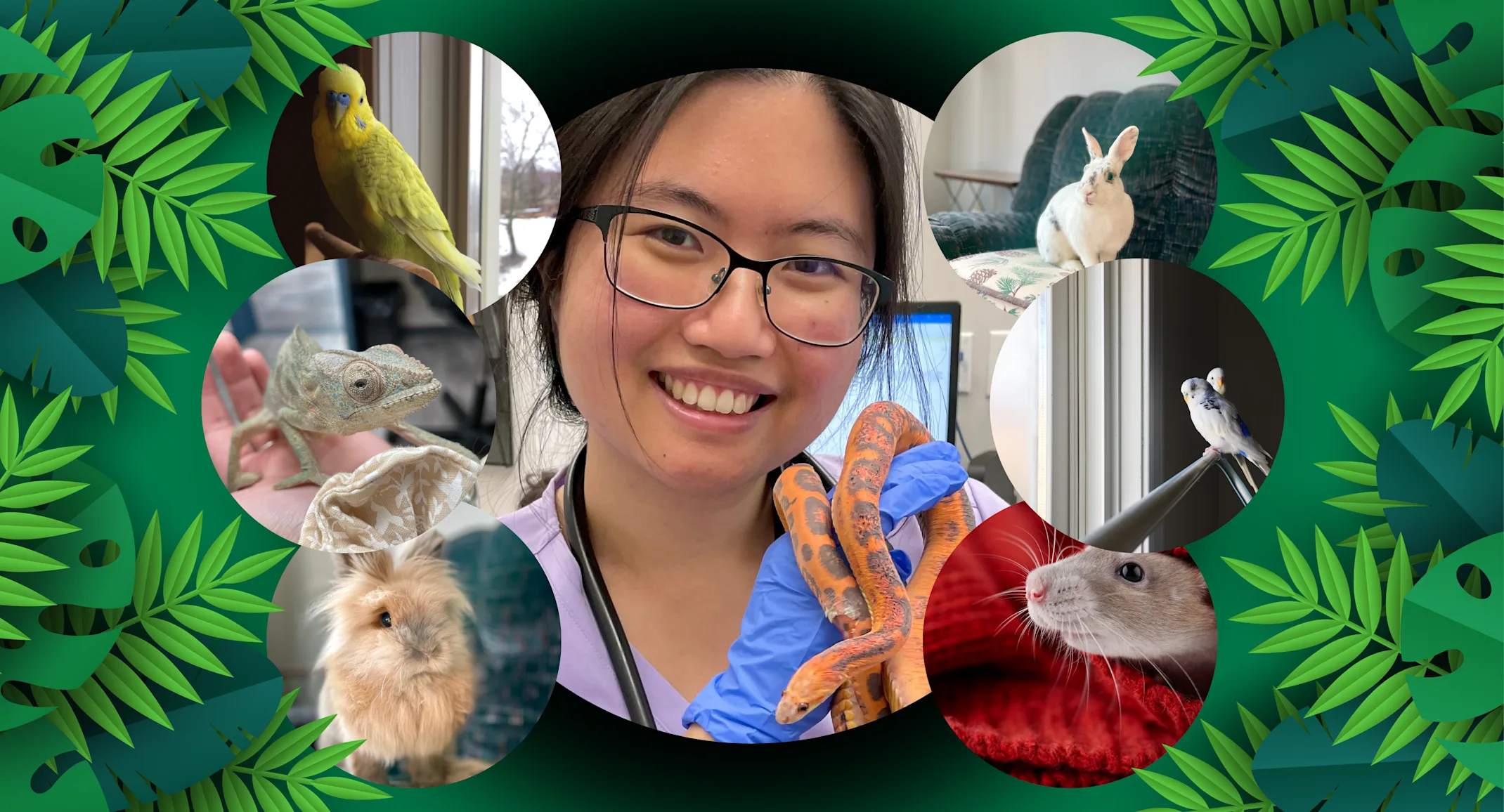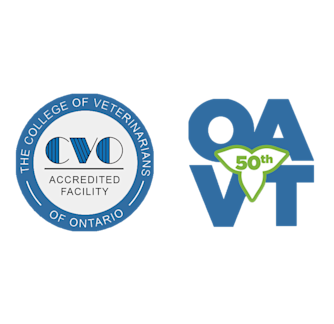Exotic Pet Services
News

Dr. Emily developed a keen interest in exotic animals at the age of 12, a passion ignited when she welcomed two budgies into her home. Within the next few years, she expanded her menagerie to include a lionhead rabbit and a total of four budgies. Committed to providing optimal care for her pets, Emily dedicated extensive time to researching their well-being and husbandry.
The catalyst for her journey into veterinary medicine occurred when one of her budgies faced a critical and potentially life-threatening situation – becoming egg-bound. To her dismay, she encountered a scarcity of local veterinarians willing to assess birds. Those who were familiar with bird care had limited availability and were unable to accommodate her budgie. Undeterred, Emily made multiple trips to Campus Estates Animal Hospital in Guelph that winter to help her bird.
Through this challenging experience, she recognized a significant gap in the availability of veterinarians willing to treat birds and pocket pets. Unfortunately, many people who share their homes with birds or have exotic small mammal companions have experienced similar situations. It was this realization that prompted Emily to embark on a path to become a veterinarian, driven by the desire to address this need within her community.
Since then, Emily has dedicated herself to acquiring knowledge and honing her skills in the field of avian and small mammal veterinary care. She has actively sought opportunities to expand her experience, including spending time in various clinics specializing in the treatment of exotic pets, including the Links Road Animal Hospital in Toronto. There, Emily delved into the intricacies of husbandry for diverse species of reptiles and birds and assisted with several critical cases. During her fourth year of veterinary school, she devoted several weeks on a clinical rotation at the Zoological Medicine department of the 404 Veterinary Emergency and Referral Centre in Newmarket. Under the guidance of board-certified exotic veterinarians, Emily engaged with a wide variety of animal species and gained invaluable hands-on experience. This period not only deepened her understanding of exotic animal care but she also found mentors within the small community of exotic veterinarians.
In addition to her professional endeavours, Emily draws insights from her pets, each presenting unique challenges. Among her current companions are a one-legged budgie, a lionhead rabbit with a sensitive digestive system, and a bunny with dental issues. These personal experiences with the health of her pets help her relate to her patients and clients.
Emily is delighted to see birds and exotic pets at Abbotsford Animal Hospital. She enjoys meeting dedicated owners and discussing husbandry and care with them, and she finds it very rewarding when she can help a sick bunny or bearded dragon.
Some species that she sees include but are not limited to:
Small exotic companion mammals: Rabbits, guinea pigs, hamsters, rats, mice, ferrets
Birds: Finches, budgies, cockatiels, parrotlets, Quakers, conures
Reptiles: Bearded dragons, geckos, snakes, turtles
Some services that she is happy to offer exotic pets include:
Examinations and Consultations: Typically, physical examinations ranging from every 6 months to once a year are recommended for exotic pets, depending on the species and their age. Pets with chronic diseases or conditions may require more frequent visits.
Diagnostic Testing: In unwell animals, oftentimes further diagnostic tests are needed to further investigate the cause and guide treatment options. This may include blood work, fecal testing for parasites, and digital x-rays.
Spay and Neuter - Rabbits: Rabbits can be spayed and neutered as early as 6 months of age. Did you know that 80% of intact female rabbits will develop uterine cancer? Spaying them is the best measure to prevent this from happening.
Dental trims: As their teeth are constantly growing, it is not uncommon for rabbits and guinea pigs to develop dental problems as they age. In addition to elongated teeth, they can develop points or spurs on their teeth that cause damage to the sensitive cheek tissue or ulcers on the tongue. Trimming teeth, when needed, improves quality of life and reduces potential complications such as tooth root abscesses.

